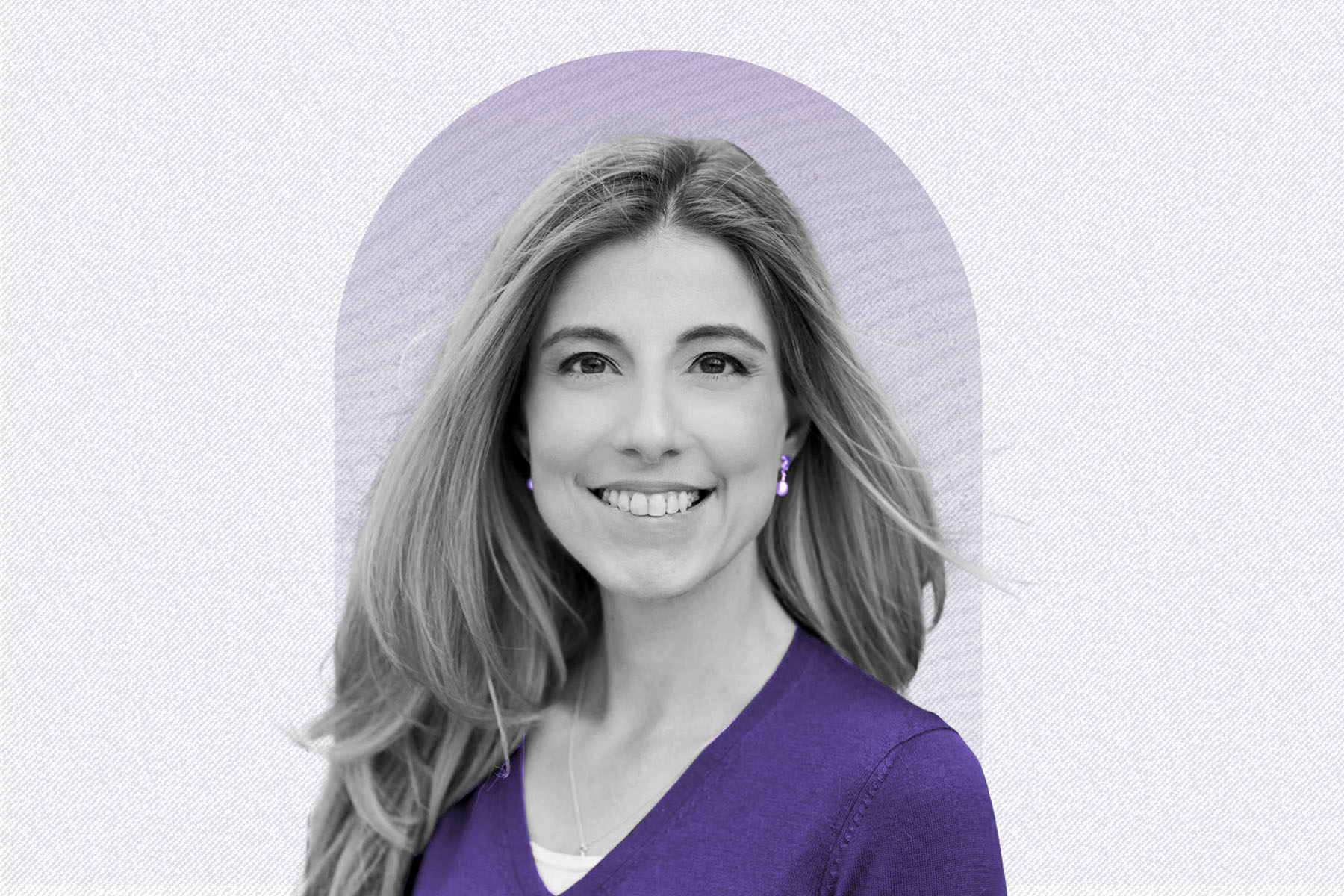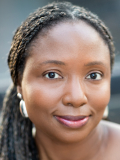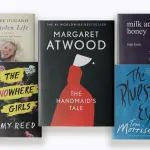Your trusted source for contextualizing the news. Sign up for our daily newsletter.
Jennifer Pollitt’s porn studies course doesn’t involve watching adult films.
In Social Perspectives in Digital Pornography: The Other Sex Education — taught for the first time at Temple University in the spring — students learn about the history of porn, how the internet changed the industry, and the messages pornography sends about “trans bodies, or Black and Brown bodies, or disabled bodies,” Pollitt told The 19th.
The undergraduate course is part of Temple’s gender, sexuality and women’s studies program of which Politt serves as assistant director. The class stands out, the professor said, because it uses current research to evaluate porn’s representation of sex and sexuality and impact on society. That the course takes a scholarly approach to a taboo topic hasn’t made it any less popular with students. Pollitt, who has taught sexuality courses for over a decade, had to keep raising the cap on the class size to accommodate all the students on the waiting list.
“So I think that universities would be in a good position to offer classes like this, because I think that students are really desperate to talk about this stuff,” she said.
Due to the long-standing stigma surrounding porn, however, college courses on the subject are relatively rare, according to Pollitt. Unpacking the stigma about porn and sexuality is one of her goals as an educator. She challenges students to examine the role internet porn plays in their lives or in their relationships. Students in the course also investigate what porn says about gender, sexual orientation and consent and how porn, digital privacy and censorship connect.
The 19th spoke with Pollitt about what inspired her to launch a porn studies course and why it’s important to interrogate digital porn’s impact on young people who have never lived in an internet-free world. Pollitt also discussed what she learned from teaching the course and what she’ll do differently when she does so again in future semesters.
This interview has been edited for length and clarity.
Nadra Nittle: Why are porn studies courses so rare in colleges and universities?
Jennifer Pollitt: Some of the first porn studies classes launched 20, 30 years ago but really haven’t become a mainstream part of academic culture. I think in the same way that we’re uncomfortable having conversations about sexuality — if you look nationally at comprehensive sexuality education and its availability, it varies state by state, town by town — there’s a discomfort around talking about sex and sexuality even in higher ed. So, then, when we peel back the layer of that onion and start talking about pornography, I think that it becomes even more complicated or more awkward sometimes. So universities hedge a little bit in terms of offering that kind of content.
I suspect people hear a term like “porn studies” and immediately jump to conclusions. What is the purpose of such a class and what do students learn in your course?
Porn studies for a very long time was not considered worthy of serious academic study. It was considered smut and a waste of time, so the journal Porn Studies is only 10 years old, if that’s any indication of how not a part of the academic discourse this was.
In this class, one of the centering questions is: “What are students learning about sex when they go to digital porn?” But, also, “What are they learning about sex in relation to race, gender, ability, kink, the size of bodies, how bodies function? What are they learning about trans bodies?” So the question is not only what are they learning about sex and sexuality, but where are they learning about all of the different things that we’ve essentially made into niche porn.
If you log on to any major porn tube right now, there are racialized categories. There are gendered categories. There are body type categories, and all of these different identities and bodies and races and genders are othered with the assumption that they are a deviation from the norms being set by patriarchy and white supremacy. So we explore all of these different categories of identity by the representation that they have or don’t have in digital porn spaces.
One of the concerns critics raise about porn is that it gives consumers, particularly men and boys, unrealistic expectations of sex and bodies. Do you discuss this in your course?
We spend a lot of time talking about real sex versus porn sex. What are some things that are happening in porn that don’t necessarily always, or even often, translate into sex in the real world? We talked about body image; pubic hair is a great one. We talked about how, oftentimes, at least in straight porn, men are fairly disembodied. Usually, the focus is on the penis, and that’s about it, whereas women are more likely to have their faces featured in porn. So we talk about the representation of bodies in terms of what are the positions happening in porn. If you try them at home, some of them are not going to translate that well; it might be uncomfortable or painful or kind of hilarious. We break down what genitals look like in all different sizes, shapes, colors, configurations. Porn is created to titillate and arouse, so mainstream porn is not always going to look like the sex that you’re having in your own intimate relationships. So, we do spend time talking about myths versus facts.
Part of my inspiration for this class was that I also used to teach a human sexuality class, and as a part of that class, I would spend a week talking about porn. And in my men and masculinities class, we would spend some time also talking about masculinity and porn. Where are we learning about gender, gender roles, about power? So it was also from having those lectures and discussions in my other classes that informed the need to build a class like this. Students were chomping at the bit to talk about this stuff, and they had nowhere to really talk about it outside of a one-off lecture in one of my other classes.
Another concern raised about pornography is that it’s bleeding into the mainstream, influencing girls and women to adopt a so-called porn or sex worker aesthetic. Has this come up in the course?
One of the things that we see is that there is an increase in labiaplasty for women between the ages of 18 and 25. In that procedure, the labia are usually minimized, which makes them look more like a porn aesthetic. Although that’s still not an overwhelmingly popular cosmetic procedure, the fact that it’s increased indicates that we need more research. What impact is porn having on younger women opting in for this purely cosmetic procedure?
All porn impacts the relationship that we have to ourselves and our bodies, because we’re seeing other bodies. But if you look at ethical feminist porn, if you look at amateur porn, bodies aren’t polished and don’t rise to the expectation of looking perfect and very adherent to these mainstream forms of what bodies should look like, which is all BS. So if you are looking for bodies that look like yours, no matter what kind of body you have, digital porn has opened up that space for more representation. But mainstream porn is still pretty formulaic in terms of representing very kind of homogenous or very similar bodies.
What do you teach your students about pornography and consent, especially since a porn star legend this year avoided trial for multiple counts of sexual assault?
We talk a lot about consent. We grapple with how, in most free mainstream digital porn, which is the type of porn that college students are more likely to consume, you’re not seeing the conversation before the scene where there’s verbal consent. You’re also usually not seeing the aftercare, like, “How was that for you? What went really well? What didn’t work really well.” Also, what does consent look like under capitalism, not only for porn and sex work but for labor by and large and overall. So we talk about what is the role of porn in starting or having conversations about consent? How do you know that the porn that you’re watching is also consensual? One, from the act itself and, two, that there was consent to have that porn uploaded to the internet.
You’ve made a point not to take a moral stance on pornography. Why was that important in the context of this course?
I take an absolutely neutral stance. I’m not here to convince students that porn is amazing and great or that porn is awful and evil. Really, the goal is to look at the research that we have and to empower students to make decisions for themselves about how they understand porn and how porn does or doesn’t fit in their own lives in all of the different ways, whether good or bad, somewhere in between or otherwise.
The unique part of this porn studies class, which is different from some of the other porn studies classes that have been offered by universities over the last two decades, is it specifically focuses on porn as a sexuality educator, and, more specifically than that, it focuses on digital porn. Many of my students, save for a few graduate students who are also enrolled in the class, are true digital natives. They have no memory of a world before the internet. So part of this class is also looking at how easily accessible porn is on the internet, and, combined with a lack of comprehensive sex ed, when young folks want to learn about sex, where are they going to learn about it? Porn is one of those places. And what are folks learning when they get there? That was really an inspiration for the class.
Now that you’ve taught this course for the first time, what have you learned? What might you approach differently next time?
It was revealed through many discussions in class that fanfiction and erotica is also something that I should include in the curriculum. How is that different from picking up a romance novel? So, I’m definitely going to build in a special lecture about fanfiction. The other thing that I’ll probably build in next time I teach it, to make it more extensive, is virtual reality porn. We didn’t talk about that a ton this semester. As tech becomes more and more advanced and VR porn becomes more and more advanced, I think that that’s an avenue to explore as well.
The one thing that I think was surprising about this class is, having taught many other sexuality classes about many other sensitive topics, it seems like there was more of a collective sense of shame that students expressed about either being curious about porn, watching porn or watching porn regularly. So, I might also build in a special lecture on the intersections of porn and shame. We had a guest lecturer, Erica Smith, come in who is amazing. She’s got a program called Purity Culture Drop Out, so she came in and talked about purity culture, and we talked about shame there, but I might build that out even a little bit more to really address students coming in who essentially are feeling ashamed for their lack of porn watching or the fact that they are watching porn. Regardless of where you fall on that spectrum, shame seems to be prevalent no matter what.






